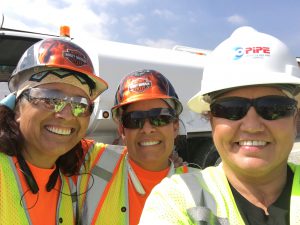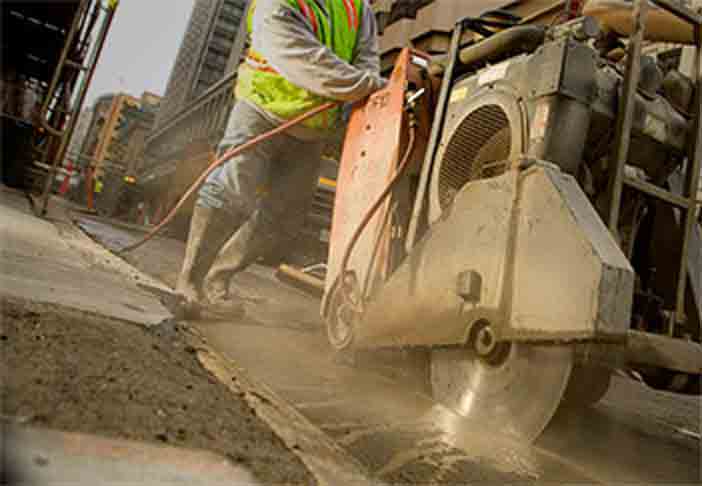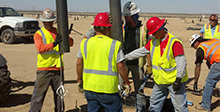Yvonne Miranda found herself in a bad spot in 1995. She was caught up in drug use and on one unfortunate day she was hit in the head with a hammer from behind. The impact nearly killed her. Though she survived, her life didn’t get any easier over the next decade as drugs had overcome her.
This wasn’t how she envisioned her life.
She remembered as a child growing up in Whittier, her family was business oriented. She spent time jumping from warehouse to fast food jobs as she grew up. She noticed that in each job she took on she was able to quickly advance to a management role. Even with that, she thought there wasn’t much future for her in those types of roles. Without a clear direction, she turned to drugs, and it took away a piece of her lifetime.
In 2005, in her early 40s, homeless and still addicted, the drugs caught up with her as she was arrested.
“I sat in jail for four months, and I had a lot of thinking to do about how I could change my life,” Miranda said.
She would soon find out how to do that.
As part of her release from prison, Miranda was ordered to attend a drug addiction program. It was at this program where she noticed a fellow recovering addict with a safety vest on. She walked up to him and asked him what he does for a living. He told her he worked on Highway 22 as a carpenter. Quite a coincidence considering that she remembered driving along Highway 22 on the way to this program and seeing workers, thinking to herself: “That’s something I want to do.” The man told her she needed to show up at the yards of a couple local companies to see if they were hiring. So, she did just that, every morning at 2 a.m. for two straight weeks.
A couple of weeks went by and a foreman noticed her. He came up to her and said, “I see you coming here every day.” He asked if she had a labor card and told her she had to join the union.
“I said, ‘What is a union?’” Miranda recalled.
Miranda went to the Laborers’ International Union of North America (LIUNA) Local 652 to join in February 2006. To do so, she had to go through a conditioning boot camp and a written and oral test. She was the only woman going through the boot camp, which included carrying 14 cement bricks back and forth to build five-by-five walls, and pushing wheel barrels back and forth with planks, two at time. This went on for eight grueling hours each day. Though it was tough, she completed that and also scored in the top five in her class on the written and oral tests.
Not long after, she got a job as a flagger on Highway 22, earning $12.12 per hour as an apprentice. She had made it – but she wasn’t nearly done.
“I love challenges,” Miranda said.
Five months after becoming a flagger, she became a cone setter and then shortly after started as a main line driver. After doing some roofing work across the country following the Great Recession, she started work on Interstate 405 in Los Angeles in 2012 as a traffic control driver. By 2014, she was the foreman on the 405 job, and by then her income was around $200,000 per year. She had 30 men under her supervision as drivers and cone setters with 13 trucks in operation at night. She was a woman in a largely male-dominant field, and she worked hard to earn the respect of her co-workers through a lot of long hours and a lack of sleep.
“There was a lot of pressure, but I didn’t give up because I had a dream,” Miranda said. “Nothing stopped me from going forward. All I am, is a woman trying to live the American dream.”
And she didn’t stop. In 2015, she purchased a home and started her own water truck company, M&J Works, after being advised by peers she had gotten to know in the union world over the years. In 2016, she earned her Disadvantaged Business Enterprise certification and now has seven employees – all of which have been given a second chance at life, just like she was.
She acknowledges she couldn’t have done this without the second chance LIUNA provided her.
“Words can’t tell you how appreciative I am. I love my union. Without them, I wouldn’t be where I am at today,” Miranda said. “They showed me that you can do better if you put your mind to it. They taught me to be tough and they taught me integrity, honesty and much more. My goal now is to put my brothers and sisters back to work.”
Stories like Miranda’s are happening across the country. LIUNA’s training includes more than 50 different courses, opening the doors to new opportunities and advancement for workers and providing contractors with the skills they need by putting people like Miranda back to work.








